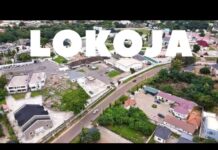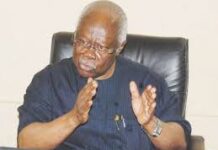Revisiting ‘Okada Ban’ in ‘The City of Aquatic Splendour’
By Kolawole O. Iyiola
POLITICS DIGEST- Over the years, Lagos have had history of enacted laws meant to regulate the operations of motorcycle/Okada riders in the state. According to pundits, what was lacking is the strong will and commitment to enforce those laws by the respective authorities.
Walking down memory lane, as far back as 2006, for instance, ex-Governor Bola Ahmed Tinubu did announce a restriction order on Okada, warning the riders to halt operations between the hours of 7:00 pm and 6:00am.
Then in 2012 during the administration of Babatunde Raji Fashola, a total ban on Okada was issued. The governor warned the operators not to go anywhere near some streets and highways in Ikeja, the capital city.
The ban was followed by a directive to the police to arrest any rider found operating on major roads, streets among which are Oba Akran Avenue, Bank Anthony Way, Isaac John Street, Opebi Link Bridge, Adekunle Fajuyi Way, Acme Road, Alausa, Oregun, Simbiat Abiola Way and Kodeso Road.
Also in 2017, Akinwunmi Ambode restricted operations of these Okada riders from plying some major highways, and bridges in the state. However, all these efforts were in vain as total compliance was not achieved due to lack of full enforcement.
Read Also:
Recently, another total enforcement on banning of Okada operations within Lagos metropolis has kicked off on Wednesday, June 1st 2022. The ban was said to cover six local government areas, LGAs and nine local council development areas, LCDAs, in Eti-Osa, Ikeja, Surulere, Lagos Island, Lagos mainland and Apapa.
To me, the need to ban Okada operations along Lagos streets is necessary as these motorcyclists create huge problem and danger to the society by causing minor and major accidents as well as the deaths of individuals all because of their lack for basic human decency and obedience to the lawa of the land.
These “Okada men” are famous for disobeying law enforcement and traffic rules and regulations as well as causing a nuisance to the society and leaving their mark of problems where ever they go.
As noted earlier Lagos has had history of banning Okada operations but without full implementation, however, it is expected that the present situation will not follow similar suit. Therefore, government and other security agencies who are responsible for protecting the lives and properties of people should ensure the full enforcement of this ban.
This became necessary, as we should not continue to lose precious lives unnecessarily due to senseless and reckless activities of these Okada riders.
The time is long overdue to arrest this monstrous hydra-headed problem to its final resting graveyard, only if we want sanity to flourish in our societies. The time is now!
Kolawole O. Iyiola
Department of Mass Communication
Babcock University, Ogun State

















